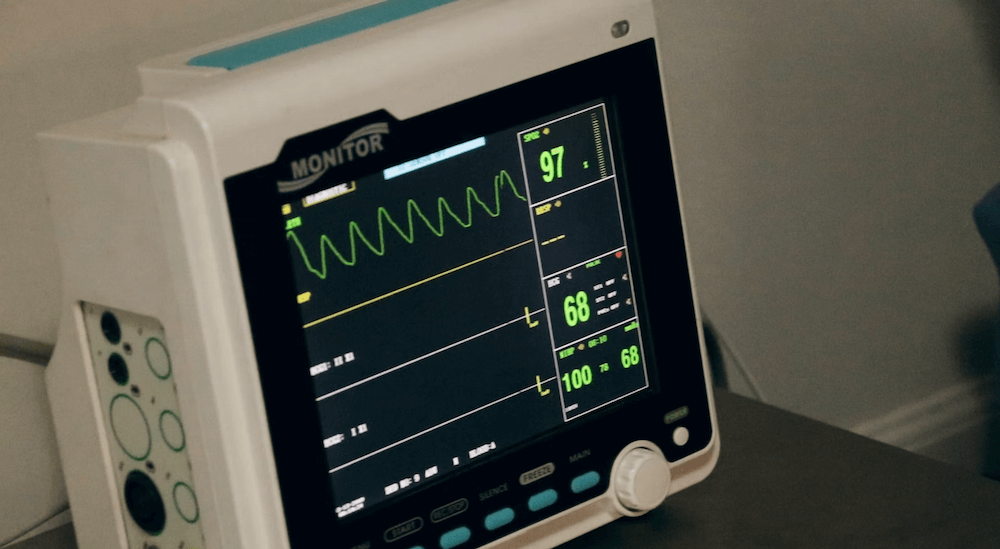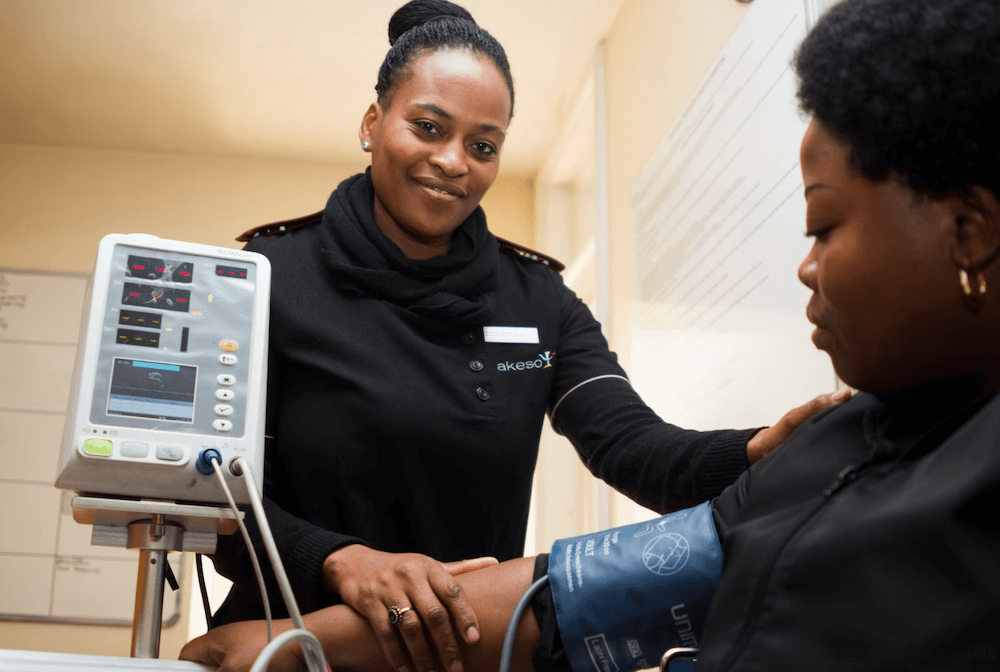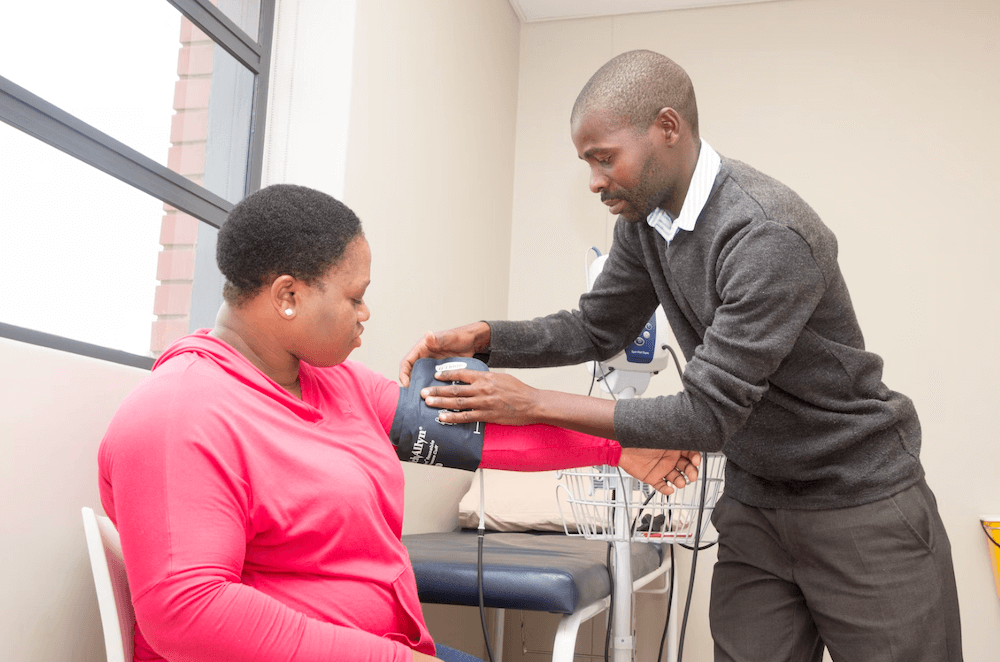Progressive Medical Institute

Classes from PMI
Certified Nursing Assistant

A CNA or certified nursing assistant is an important position in any hospital setting. CNAs have many responsibilities that make them an integral part of the patient process in healthcare. While being a CNA is often considered an entry-level position, it is a great stepping stone to other healthcare professions. Some of their responsibilities include: Turning or moving patients, Gathering medical supplies, Bathing patients, Grooming patients by brushing their hair, teeth, shaving them, etc., Feeding patients and documenting their food and liquid intake, Checking vital signs such as blood pressure and heart rate, Answering patient calls, Documenting information, Cleaning rooms and bed linens, Stocking supplies, Assisting with some medical procedures, Safety procedures, Transporting patients, Taking care of wounds. This course provides instruction in the roles and responsibilities of the Nursing Assistant. Body structure and function, infection prevention, nutrition, principles of growth and development, safety in healthcare, home health care, and care of the older person are some of the topics emphasized. Instruction and practice of basic patient care skills required for Nursing Assistants is provided. Skills practiced include patient assistance with activities of daily living, personal care, transfer and positioning, vital sign measurement, intake and output measurement, restorative care, and communication. Students will practice supervised basic patient care in a clinical setting prior to completion of the program. At the completion of this certificate, students are eligible to take a certification exam to become a Certified Nursing Assistant (CNA).
Electrocardiogram (EKG) Technician

Electrocardiogram technicians work with patients in medical settings to collect data about their heart rates and heart impulses. This course will prepare students for an entry level position as an electrocardiogram technician. The course is a comprehensive program designed to make sure students are able to: Describe the conduction system of the heart. Discuss the sites of action potential generation and propagation through the cardiac conduction system. Contrast the effect of parasympathetic with sympathetic stimulation of the cardiac conduction system. Correlate the actions of the heart represented by the p waves, PR intervals, QRS complex, and T waves. Knowledge of proper placement of electrodes based on ECG mechanics. Calculate a heart rate from ECG strops. Analyze how different rhythms would appear on ECG strips (Sinus Bradycardia, Sinus Tachycardia, Normal sinus rhythm). List and know 5 common causes of abnormal heart rhythms. Analyze how dysrhythmias would appear on an ECG strip (Atrial Fibrillation, Premature Ventricular Contractions, Ventricular Fibrillation, Asystole/Ventricular standstill). Knowledge of nursing interventions intended to correct the effects of insufficient tissue perfusion associated with dysrhythmia.
Patient Care Technician

Patient Care Technician (PCT) provides daily assistance to patients. You will help them with their basic needs and collaborate with medical professionals to achieve excellent patient care. A PCT is a committed and compassionate professional. They have great interpersonal skills and ability to create a supportive environment. We expect you to be trained in patient care as well as various clinical tasks. The goal is to facilitate the recovery of the ill and injured by providing them critical everyday assistance.
Certified Clinical Medical Assistant

Medical Assistant Program at Progressive Medical Institute
The Medical Assistant program at Progressive Medical Institute offers a dynamic hybrid learning experience, equipping students with essential skills for a rewarding career in healthcare. With flexible course durations and comprehensive hands-on training in classroom, lab, and clinical settings, this program is designed to prepare you for certification and practical roles. Beyond fundamental skills, the program emphasizes patient-centered learning and fosters a strong sense of community, ensuring graduates are not only competent but also compassionate and career-empowered.
Program Details:
- Cost: $500 down, $4,314.96 monthly for 4 months
- Duration: 12.5, 15, or 17 weeks
- Schedule: Hybrid delivery format
- Prerequisites: High School Diploma Or GED; TB Screen (Valid Within 2 Years); Drug Screen (Within 1 Month Of Enrollment); Background Check (Within 30 Days Of Enrollment); CPR BLS/First Aid Certification
- Accreditations: Unknown (authorized by the Georgia Nonpublic Postsecondary Education Commission)
- Career Outcomes: Unknown
Phlebotomy Training

Obtaining phlebotomy technician training through our program will prepare you for certification and a fulfilling career in the medical field. Our accredited phlebotomy school gives students the opportunity to work directly with patients. It teaches them how to do blood sampling safely, and equips them with the knowledge they need to pursue a career. Blood sampling is an important part of preventing, identifying, and treating medical issues. Successful blood sampling also provides vital information about a patient's health and is the lifeline that supplies donated blood to those in need. We will prepare you to fill this vital role. In this growing field it is important to be familiar with medical terminology, the healthcare setting, and how to communicate effectively with the patients you are serving. Our training program teaches you how to use proper infection control during blood sampling and focuses on patient safety. You will also learn how to keep medical errors from happening with careful labeling of blood specimens. Upon completion of our training program, students are equipped to pursue phlebotomy certification.
In person Phlebotomy Classes

Phlebotomy Technician Program at Progressive Medical Institute
Unlock a vital career in healthcare with the Phlebotomy Technician program at Progressive Medical Institute. This comprehensive hybrid program, designed for aspiring medical professionals, equips students with diverse blood collection techniques, safety protocols, and hands-on skills essential for immediate entry into the field. Progressive Medical Institute prides itself on delivering high-quality, affordable education that offers an alternative to the doctoral pathway, fostering community betterment, and boasts an impressive 100% national examination passing rate, ensuring graduates are exceptionally prepared for success in supporting healthcare teams.
Program Details:
- Cost: The tuition or enrollment fee is not explicitly stated. Prospective students are encouraged to contact the institute directly at 770-897-3020 or [email protected] for detailed cost information.
- Duration: Approximately 5 to 6 weeks, totaling 75 hours (50 class hours and 25 lab hours).
- Schedule: Hybrid format combining online theoretical instruction with in-person practical training. Day classes typically last 5 weeks, while night/weekend classes extend to 6 weeks.
- Prerequisites: A drug screen within 1 month of enrollment, a background check within 30 days of enrollment, and CPR BLS/First Aid certification (must be a BLS course).
- Accreditations: The program is offered by an accredited phlebotomy school authorized by the Georgia Nonpublic Postsecondary Education Commission. However, the specific accrediting body for the phlebotomy program is not explicitly stated on the institute's website.
- Career Outcomes: Students are trained to become qualified medical professionals who support healthcare teams effectively, with comprehensive hands-on skill development for medical technician roles. The institute boasts a 100% passing rate on the national examination.
In person Patient Care Technician Classes

Progressive Medical Institute: Patient Care Technician Program
Progressive Medical Institute's Patient Care Technician (PCT) Program is a rigorous training initiative that prepares students for a crucial role in healthcare.
Core Program Objectives:
-
Develop comprehensive skills in patient care, including phlebotomy and EKG.
-
Build the expertise required for National Exams in Phlebotomy, EKG, and Patient Care Technician.
-
Provide practical experience in a clinical atmosphere.
Role of a PCT:
-
Maintain sanitized patient rooms.
-
Assist patients with daily needs, from personal hygiene to grooming.
-
Monitor patients' vital signs or EKG signals and overall condition.
-
Perform basic nursing procedures, such as changing bandages.
-
Provide emotional support appropriate to patients' specific issues or needs.
Pre-requisites: Certified Nursing Assistant License or proof of 2 years of experience.
This program seamlessly integrates theoretical knowledge and practical training, offering students a holistic learning experience. It embodies our commitment to shaping compassionate professionals who can meet patients' daily needs and collaborate with other medical staff to deliver exceptional patient care. A career as a PCT is more than just a job - it's a commitment to making a real difference in people's lives.
In person Certified Nursing Assistant Classes

Progressive Medical Institute: Certified Nursing Assistant Program
Join our Certified Nursing Assistant (CNA) program at Progressive Medical Institute and prepare for a meaningful career in healthcare.
Course Description As a CNA, you play a crucial role in patient care. This program covers all facets of a CNA's responsibilities, making it an excellent first step towards further healthcare professions. You'll learn about:
- Assisting with activities of daily living
- Providing personal care
- Transferring and positioning patients
- Vital sign measurement
- Care of wounds
- Safety procedures
- Stocking supplies
- And more...
Practical Experience The program isn't all about theory. We ensure you get hands-on experience, practicing basic patient care under supervision in a clinical setting before you complete the program.
Certification On successful completion, students are eligible to take a certification exam to become a Certified Nursing Assistant. So, are you ready to make a difference in healthcare? Let's start with our CNA program.
In person Electrocardiogram (ECG/EKG) Classes

Progressive Medical Institute: Electrocardiogram (EKG) Technician Training
Embark on a fulfilling journey towards a valuable healthcare career with our EKG Technician Training Program.
What You Will Learn:
- Comprehending the heart's conduction system.
- Understanding the sites of action potential generation and its propagation.
- Differentiating between the effects of parasympathetic and sympathetic stimulation on the heart's conduction system.
- Recognizing the actions of the heart represented by p waves, PR intervals, QRS complex, and T waves.
- Proper placement of electrodes for accurate EKG readings.
- Calculating heart rates from EKG strips.
- Identifying and interpreting different heart rhythms and dysrhythmias.
- Knowledge of nursing interventions related to dysrhythmia.
As an EKG Technician, Your Responsibilities May Include:
- Conducting EKG tests.
- Recording EKG readings.
- Administering stress tests and Holter monitoring tests.
- Providing EKG data to physicians.
Upon completion, this comprehensive program prepares you for an entry-level position as an EKG Technician. So, gear up for a significant role in patient care and diagnostics in the healthcare field.
In person Medical Assistant Classes

Certified Clinical Medical Assistant Course
The Certified Clinical Medical Assistant program is designed for those seeking a rewarding healthcare career in a short span of time.
Key Role
As a medical assistant, your role will encompass both administrative and clinical tasks, aimed at enhancing patient comfort during visits to healthcare facilities. This role typically involves more medical tasks as compared to clerical ones.
Responsibilities
Your responsibilities as a medical assistant may include:
- Preparing patients for examinations
- Taking patient histories and vital signs
- Assisting physicians during examinations
- Explaining procedures to patients
- Calling in prescriptions to pharmacies
- Collecting laboratory specimens
- Sterilizing medical instruments
Curriculum
The course prepares students in patient healthcare, phlebotomy, EKG, patient care, and medical assisting. It provides well-rounded training in classroom, lab, and clinical environments.
Certification
Upon completion, students will be prepared and eligible to undertake the National Exams, which include: Phlebotomy, EKG, Patient Care Technician, and Certified Clinical Medical Assistant.
About school
Progressive Medical Institute
Progressive Medical Institute is a higher education institution focused on medical technician training, offering specialized programs like Phlebotomy Technician and Electrocardiogram Technician courses. The school emphasizes practical skills for medical technical careers, community empowerment through accessible, quality education, and a patient-centered learning approach. They aim to produce qualified medical extenders and professionals to support local healthcare systems, providing an alternative pathway to a medical career without a doctoral degree.
Highlights:
- 100% passing rate on the national examination
- Dedicated to empowering students with high quality, affordable medical technical education
- Hybrid phlebotomy program combining online and in-person training
- Focuses on comprehensive hands-on skill development in blood collection methods
In the Peachtree Corners, GA area
3300 Holcomb Bridge Road, Peachtree Corners, GA 30092